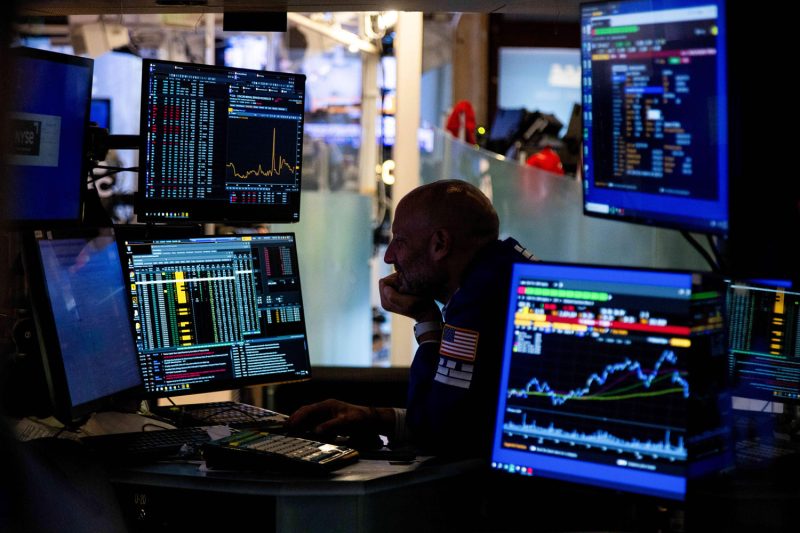Amidst Increasing Recession Fears, Dow Jones Sees Significant Drop in Points
The Dow Jones Industrial Average experienced a dramatic drop of nearly 500 points on Thursday, sending ripples of concern through the financial markets. The dip in the Dow followed a series of unsettling economic indicators and concerns about a potential recession.
One of the key drivers behind the market downturn was the inverted yield curve, a phenomenon that has historically preceded economic recessions. The inversion occurs when the yield on long-term bonds falls below that of short-term bonds, suggesting a lack of confidence in the future economy. Investors closely monitor this indicator as a potential signal of impending economic challenges.
Trade tensions between the United States and China also contributed to the market jitters. The ongoing trade war has fueled uncertainty and volatility in global markets, leading to concerns about the broader economic impact. News of escalating tariffs and retaliatory measures between the two economic giants has kept investors on edge, with fears of a slowdown in global economic growth.
In addition to external factors, domestic economic data has raised alarms about a potential recession. Weak manufacturing data, slowing job growth, and declining consumer confidence have all pointed to a cooling economy. These indicators reflect broader concerns about the sustainability of the current economic expansion, which has been underway for more than a decade.
As investors grapple with the prospect of a recession, they are shifting their focus to safe-haven assets such as gold and government bonds. These traditional safe assets tend to perform well during times of economic uncertainty, offering a hedge against market volatility.
The Federal Reserve’s monetary policy also came under scrutiny in light of the market turbulence. With interest rates already relatively low, there are limited tools available to the central bank to stimulate the economy in the event of a downturn. Investors are closely watching for any signals from the Fed about potential rate cuts or other policy measures to support economic growth.
While the market drop on Thursday sparked fears of a potential recession, it is important to maintain a long-term perspective and not overreact to short-term fluctuations. Market volatility is a normal part of investing, and it is essential to stay informed, diversify investments, and seek professional guidance during uncertain times.
Overall, the recent dip in the Dow Jones Industrial Average serves as a stark reminder of the fragility of financial markets and the interconnected nature of the global economy. By staying informed and prepared, investors can navigate uncertainty and position themselves for long-term financial success.

